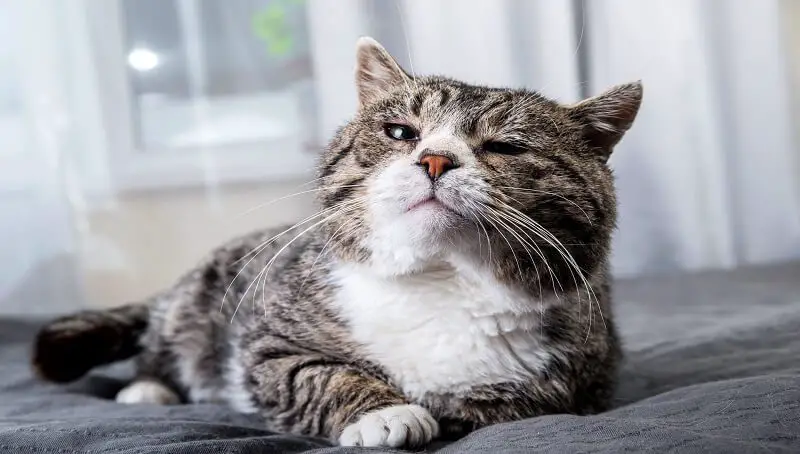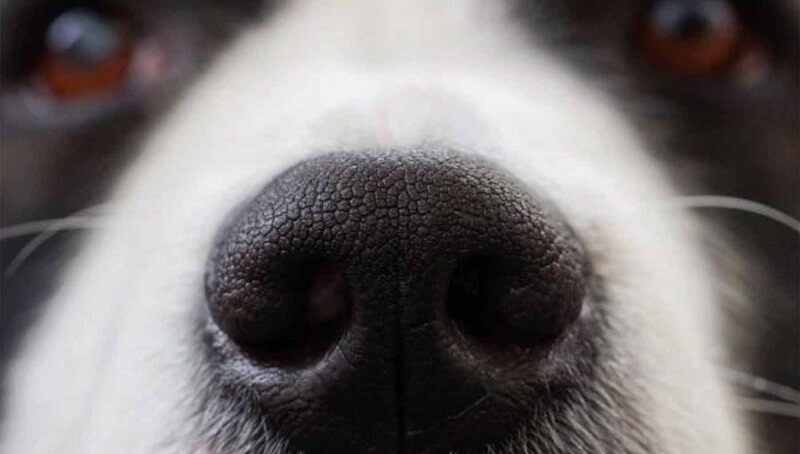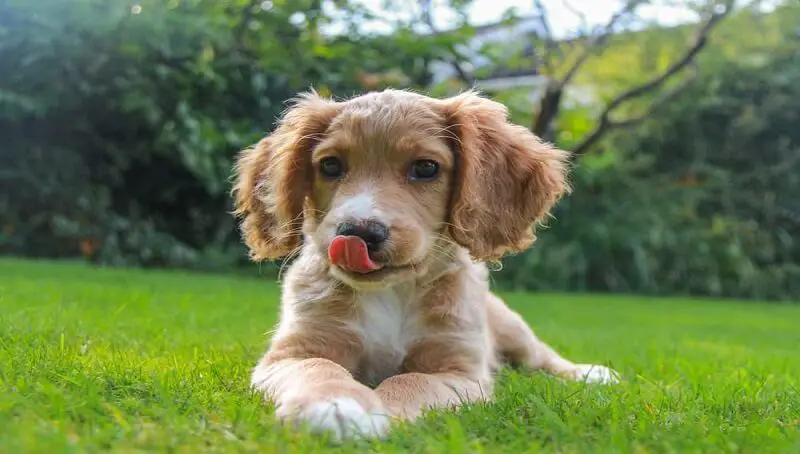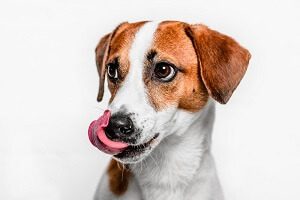
How Long do Cats Live? The Lifespan of Cats
June 30, 2022
Why is a Dog’s Nose Warm? Any Reason For Concern?
July 1, 2022
When having a dog, and a pet in general, you will notice a lot of things that might be frustrating, and a lot of adorable things as well. A dog licking its lips, depending on the reason behind this, can be something really fun to watch. But why exactly would a dog lick its lips? Most of the time, they will do this when they see or smell something tasty. But what about when there’s no food around? What other reasons could there be?
Lip licking is usually a way for dogs to communicate with you, just like wagging their tails. This article will talk a little about other reasons behind your dog licking its lips around you. You will also find out at what point should lip-licking turn from something adorable into something that would have you worried.
Why do dogs lick their lips?
Like in the case of most other types of pets, dogs as well will find a lot of ways of communicating with us, considering that they can’t just speak and talk about their problems. It will take some practice to understand what your pet is expressing when doing something to catch your attention. Some animal behaviorists will tell you that lip licking in dogs will usually be due to several reasons, among the most common are:
- Anxiety
- Appeasement (using calming signals as a form of showing submission)
- Expecting a meal
- Nausea, oral discomfort, or other health issues
Now that you know some of the most obvious reasons behind this action, let’s go into detail about them and what you should do in each of the cases.
You might also like my articles on how long will a dog stay in heat, why are puppies breathing fast, and why would a dog start whining.
Your dog might smell something it likes
This is usually the most common reason why a dog will lick its lips. It will smell something that it likes. The scent of food might make your dog lick its lips, regardless of whether you’re cooking something appealing or you’re just opening a can of its favorite food. This will usually make their mouths water. This is an instinctive behavior, so it will be mostly involuntary and just a body response to anticipating food. The mouth will also produce saliva in the expectation of chewing and preparing for food digestion. Humans have a similar biological response but we grew to ignore it.
Your dog feels anxious
Your dog might experience anxiety, especially if it licks its lips when you have guests over, the TV is playing really loudly, or you’re out for a walk in a loud area. Although you might notice it’s anxiety, you should try to avoid comforting them, because this will usually just reinforce their anxiety. This is because offering comfort might turn against you in the long run and make your dog understand that showing anxiety will attract your attention. What you can do instead is give them a short and easy-to-follow command like shake or sit, so that the dog gets out of that negative state. You will only offer a reward to the dog when it complies, rewarding good behavior and not the display of anxiety.
Your dog is telling you something
A dog will also use lip-licking as a way of showing appeasement, especially when perceiving something as a threat. This can be anything from a human to another animal. This is something that should tell you that the animal is in no way threatening or trying to hurt you. You will notice a dog licking its lips after a session of scolding when it does something naughty.
Most of the time, because a dog won’t be able to understand your words, it will have a hard time understanding that the scolding is because of something it did. Until it understands what you consider as wrong behavior, your raised voice and aggressive body language will be perceived as a threat, which will make your dog go into a submissive posture to try and calm you down. Keep in mind that your pet will only be submissive up to a point, after which it will get into a defensive state if the threat is perceived for a longer period of time. This is why it is vital to your relationship that you give your pup enough space and time to calm down. You should always use positive reinforcement instead of punishments when possible, for better long-term results.
Your dog has an underlying health condition
 You will also notice that your dog will lick its lips if it is suffering from one health condition that causes this symptom, like a sore tooth, nausea, or even an infection inside the mouth. You might have to take your dog to the vet especially if you notice it has lost interest in food it used to like along with licking its lips more frequently. Your dog might be suffering from either ulcerated gums or an infected tooth.
You will also notice that your dog will lick its lips if it is suffering from one health condition that causes this symptom, like a sore tooth, nausea, or even an infection inside the mouth. You might have to take your dog to the vet especially if you notice it has lost interest in food it used to like along with licking its lips more frequently. Your dog might be suffering from either ulcerated gums or an infected tooth.
At the same time, the issue might have nothing to do with the dog’s mouth and might be instead related to nausea. Taking your pup to the vet might make light of the problem and rule out other issues as well, like a gastrointestinal problem. Problems at the gastrointestinal level are usually easier to spot because they are accompanied by other symptoms like loss of appetite, lethargy, constipation, diarrhea, or vomiting.
What can you do if your dog is licking its lips frequently?
- When there’s no obvious cause for this behavior – If you can see any obvious reason for your dog to lick its lips, there’s no reason for anxiety and no new food around it, then it might be time to take it to the vet to see what’s wrong.
- When you are with your dog in a social gathering – If you’re in a crowd of people or around a lot of animals and you notice your dog starts licking its lips, then you should consider removing it from the area and giving it some time to calm down and relax. It might e licking its lips as a way of showing you that they are anxious and trying to show its submissiveness.
- When you’re making food – This is the most common reason for a dog licking its lips. This isn’t something you should worry about, as they are only showing you that they can’t wait to try your tasty food.
Lip licking is one of the many behavioral actions you can expect from a dog. It usually is something that shouldn’t worry you, but there are instances in which a dog licking its lips might point towards a severe health issue that would require the attention of a veterinarian.
